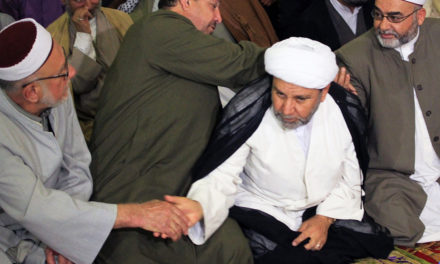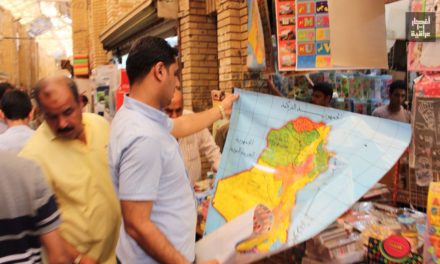What you’re about to read is not fiction, although I wish it was. It’s also not propaganda, although some Iraq observers will have you believe so. It’s the story of a humble boy from a simple town with extraordinary bravery during trying times. This is my attempt to honour the life and sacrifice of my cousins’ cousin, Ayoub Mohammed Hassan al-Jabouri.
Our story begins in early 1991 during Iraq’s historic uprising against the repressive regime of Saddam Hussein. The southern town of Rumaitha in Al-Muthana province is in the hands of anti-government rebels. Ayoub’s family members participated in the five-week uprising. Once the regime regained control of the southern cities, they set out to capture or kill rebels.
Ayoub’s family was forced to watch as Saddam’s Ba’ath Party henchmen looted their home of all valuables and then reduced it to rubble. The extended family of twelve, including Ayoub’s 70-year-old grandmother, were transported to Samawa Prison where they were forced to survive on a daily diet of five dates. It is in this prison that Ayoub was born. He did not feel the warmth of the sun until he was three months old.
Growing up, Ayoub was athletic and loved sports, particularly wrestling. He also excelled academically and enjoyed local volunteering. After the 2003 overthrow of the Ba’athist regime, Ayoub would travel to Karbala to volunteer at the holy shrines of Imam Hussein and Abbas during the Arba’een and Shabaniyah commemorations.
Ayoub passed high school with flying colours and specialized in mechanical engineering during his senior year. He was accepted into an engineering program at university but due to financial pressures at home, he was not able to study full-time. These circumstances also kept him from travelling. The furthest from Rumaitha that Ayoub went was Baghdad. Given his priorities to his family, volunteer work and studies, Ayoub decided to put off getting married until he could graduate and establish himself as a self-made man. That was his plan. Then Daesh (ISIS/ISIL) invaded.
Iraq’s Grand Ayatollah Sistani issued a fatwa (religious edict) shortly after Mosul was invaded, calling for Iraqis to protect Iraq against Daesh. Ayoub did not hesitate to serve his country. Although his friends tried to talk him out of it, he joined Sheikh Yaseen al-Rumaithy, a local religious leader linked to the holy shrines in Karbala, and went off to fight Daesh within days of Sistani’s fatwa. He told his friends “If we don’t go out and help Iraq then who will?”
On March 9, 2015 Ayoub and his fellow members of the Hashd al-Shaabi (Popular Mobilization Forces) were stationed at Amiriyat al-Fallujah (southeast of Fallujah) in Anbar province along with the Iraqi Army. They came under heavy attack from Daesh and the Iraqi Army decided to move but did not inform the Hashd fighters. Daesh sent a series of suicide bombers, starting with an explosives-laden Caterpillar bulldozer used as a VBIED (vehicle-borne improvised explosive device), two other car bombs and then small-arms fire.
Ayoub’s comrade was shot by this gunfire. Adhering to the unwritten rule of leaving no man behind, Ayoub went out to get his friend’s body only to be shot himself by sniper fire. Ayoub bled to death two hours later.
Condolences from across Iraq reached Ayoub’s family including the offices of Grand Ayatollah Sistani, the holy shrines of Imam Hussain and Abbas in Karbala and the Kadhimain shrine in Baghdad. The man who served his community, people and faith throughout his life was not forgotten during his death.
Ayoub is one of thousands of seemingly ordinary Iraqis doing extraordinary things to protect their families, cities and country. When Daesh is defeated and the dust settles, Iraq will need to tackle the massive task of remembering and honouring the brave men we’ve lost. As the mainstream media continues to hash out soulless pieces on Iraq, it is important we remember that there are faces, names and stories behind those who fight terror.
Please recite Al-Fatiha for Ayoub and the other brave Iraqis we are indebted to.










